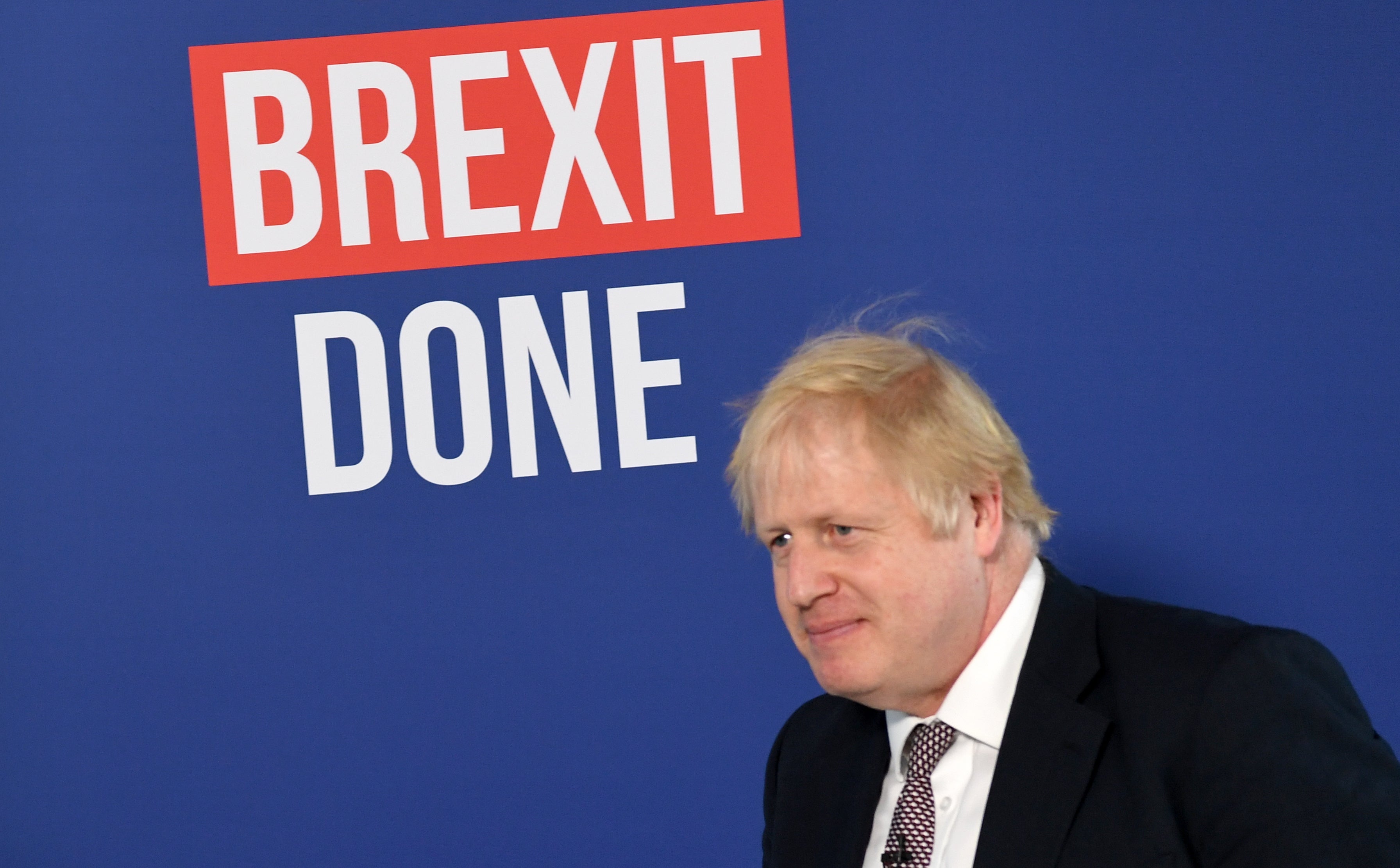The Tory leadership contest turns nasty – with Brexit the mode of attack
The EU faultline which has divided the Tories since the Thatcher era has re-emerged, becoming a vehicle for personal attacks, writes Andrew Grice


Conservative Party leadership elections are often more about stopping someone rather than the winner garnering positive support in their own right – as the one-time front-runners Michael Heseltine, Kenneth Clarke and Michael Portillo will testify.
This contest began with a “Stop Truss” campaign by the foreign secretary’s backbench enemies. Then Boris Johnson and his remaining allies launched an “anyone but Rishi” campaign, accusing the former chancellor of treachery. Now it’s all about “Stop Mordaunt”, after Penny Mordaunt’s remarkable transformation from would-be leader without followers to bookies’ favourite.
As the contest got underway, some Tory MPs hoped it would be the moment the party finally “moved on” from Brexit. They noted approvingly that most candidates were winning the support of both 2016 Leavers and Remainers. Sadly, it hasn’t lasted.
There was always going to be a debate about how to make the best of “Brexit opportunities.” But now the EU faultline that has divided the Tories since the Thatcher era has re-emerged, becoming a vehicle for personal attacks as the contest turns nasty.
David Frost, Johnson’s former Brexit negotiator, attacked Mordaunt’s performance as his deputy last year and claimed she would not stand up to the EU. “I don’t believe that a government led by her could succeed,” Frost wrote in The Daily Telegraph. When I asked Brussels officials this week what they made of Mordaunt across the negotiating table, it’s fair to say they were underwhelmed. One said: “There were questions of competence.”
However, some Tories think Frost is overreaching himself, describing him as “the self-appointed keeper of the Brexit flame”. He is backing Liz Truss and appears to be doling out jobs in her government, using his Telegraph column to urge Brexiteer Kemi Badenoch to “stand down in return for a serious job in a Truss administration”.
This broke the unwritten rule that such deals are not discussed in public, even though there is frantic horse-trading behind the scenes. It’s an unseemly spectacle for voters to see the Tories squabbling over the spoils rather than coming up with ideas to ease the cost of living crisis.
Mud is now flying in all directions. Team Mordaunt insists her Brexit credentials are impeccable; as a cabinet minister, she opposed Theresa May’s Chequers deal (hated by hardline Eurosceptics). Mordaunt and Badenoch supporters suggest, rather inevitably, that Truss is not a true believer because she campaigned for Remain in the 2016 referendum. Yet she has shown enough zeal of the convert to win the backing of Brexiteers including Suella Braverman, who was eliminated from the race on Thursday.
Brexit becoming a campaign issue will encourage candidates to ratchet up their anti-EU rhetoric. All the runners already felt the need to promise to press ahead with Truss’s bill allowing the government to override key elements of the Northern Ireland protocol. Despite that, the incoming prime minister might let the controversial measure run into the sand; being viewed as a breaker of international law would hardly be a good debut on the world stage.
Once the Tory contest is over, there will be a window of opportunity to reset UK-EU relations; that would require breaking the deadlock over the protocol. Brussels will be relieved to see the back of the untrustworthy Johnson and be prepared to do business with his successor.
The incoming PM will not receive a welcome pressie of EU concessions on the protocol. But EU diplomats tell me there will be a willingness to meet in the middle over checks on goods moving from Great Britain to Northern Ireland, in the hope of creating momentum towards an eventual deal.
The view in Brussels is that it would be easier to strike an agreement with Rishi Sunak and Mordaunt than with Truss. Like Johnson, Truss has a trust problem in the EU’s eyes after bringing in the bill. “She began negotiations [on the protocol] in a positive way in January but then made a cold political calculation to prioritise her domestic prospects,” one EU insider claimed.
To keep up to speed with all the latest opinions and comment sign up to our free weekly Voices Dispatches newsletter by clicking here
Whitehall sources concur. Truss’s plan to woo the European Research Group (ERG) has not yet won its wholesale support in the way she hoped; Mordaunt’s unexpected surge and Badenoch’s unexpected candidacy has complicated matters. So Truss’s only route to Downing Street now is to attack Mordaunt. Whether this works or backfires could decide the contest.
It’s too much to hope for a better EU trade deal than Johnson’s threadbare one, even though reducing barriers would boost the UK’s sluggish growth. (For that, we will have to wait for a Labour-led government). But with goodwill on both sides of the Channel, the black cloud of the protocol could be lifted, and relations improved – not just with Brussels but also the US, France, Germany and Ireland.
For the new PM, the alternative would be a trade war during an economic crisis, which would be economically and politically damaging. They should take the window of opportunity while they can.
Join our commenting forum
Join thought-provoking conversations, follow other Independent readers and see their replies
Comments
Bookmark popover
Removed from bookmarks